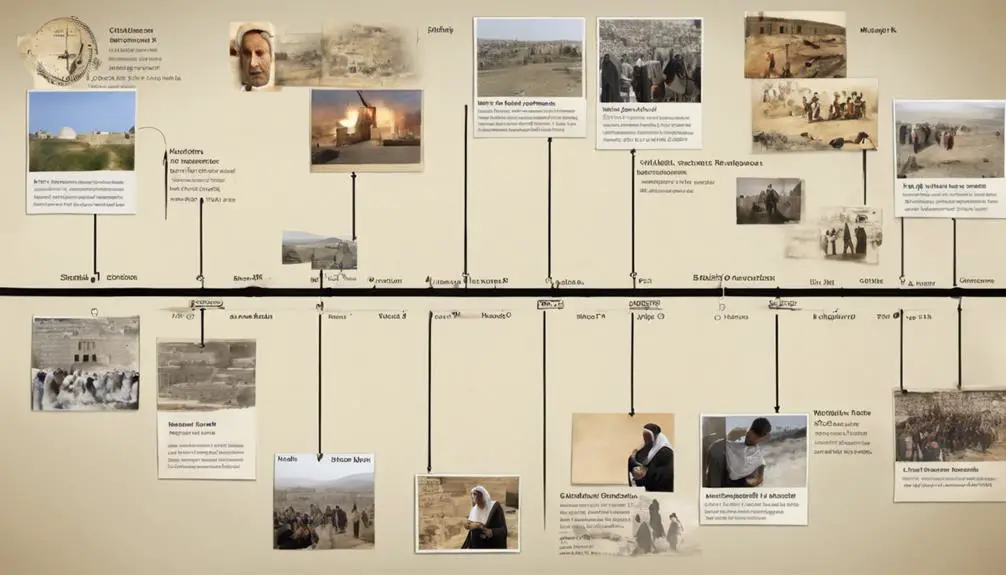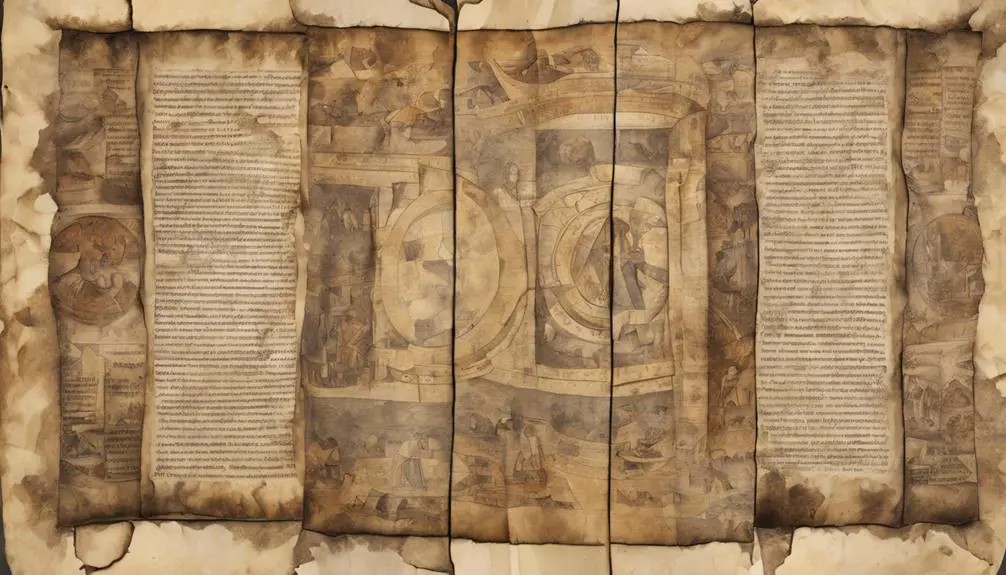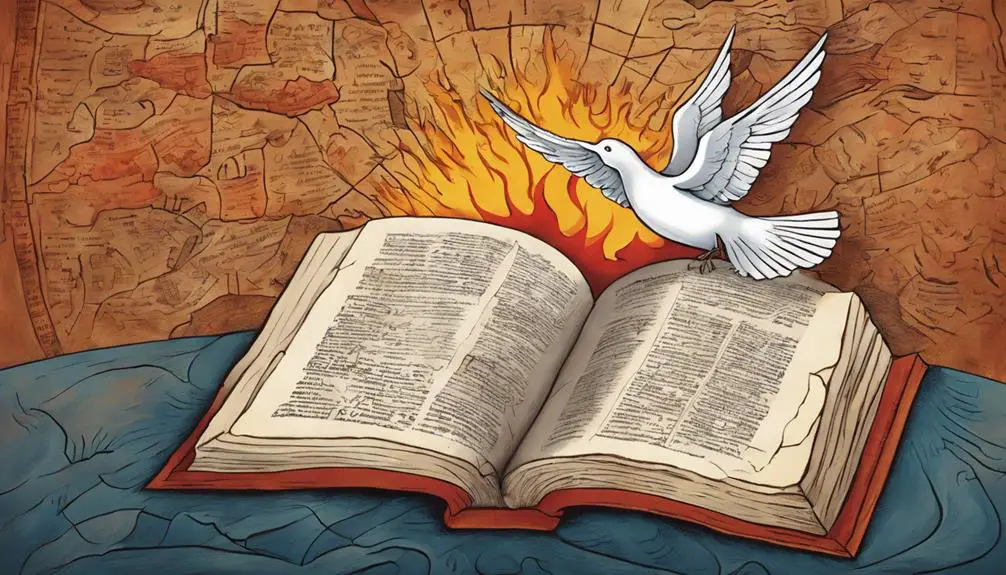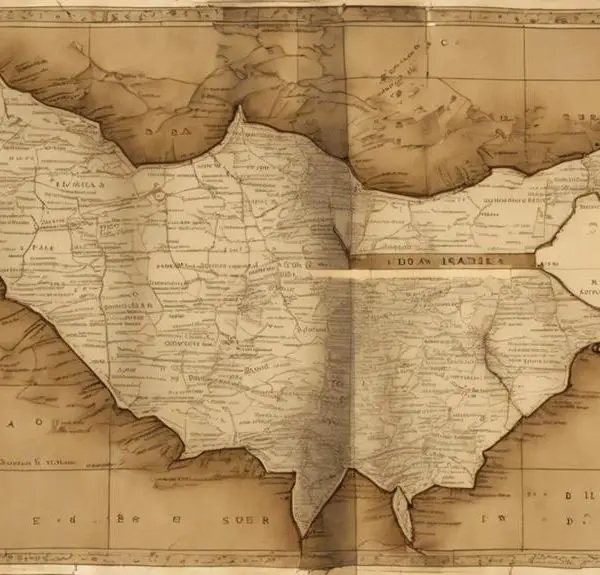Trace the intriguing connection between the Israel-Palestine conflict and its potential biblical origins, in an exploration of truth, prophecy, and geopolitics.

Is the Israel Palestine Conflict in the Bible
Like a jigsaw puzzle with missing pieces, the Israel-Palestine conflict can seem incomplete without considering its potential biblical origins.
You've likely heard differing opinions on whether this centuries-old strife is rooted in the Holy Scriptures.
Some argue that ancient prophecies and narratives set the stage for this ongoing clash, while others contend that it's purely a modern, geopolitical dispute.
But what's truly behind these perspectives? Let's embark on an exploration to uncover whether the Bible really holds the key to understanding this complex conflict.
Key Takeaways
- The Israel-Palestine conflict has its roots in biblical narratives, with differing interpretations of God's covenant with Abraham.
- Religious prophecies add a spiritual dimension to the conflict, predicting a Jewish return to their homeland.
- Misinterpretations and misconceptions of scripture contribute to the perpetuation of the conflict, often influencing political discourse.
- Modern-day implications of biblical narratives continue to shape the sociopolitical landscape of the region, fueling discord over identity and land claims.
Historical Overview of the Conflict

How did the Israel Palestine conflict, a deeply rooted and complex issue, originate in the annals of history? It's a question that requires you to understand the conflict timelines and the continual, yet often unsuccessful, peace efforts.
The conflict's timeline traces back to the end of the 19th century, with the rise of Zionism and Arab nationalism. You see, the Zionist movement, initiated by European Jews, aimed for a homeland in Palestine where Jews were a minority. This clashed with the Arab nationalists who sought independence from Ottoman rule.
The pivotal point in this conflict was the 1947 UN Partition Plan, intending to separate Palestine into Jewish and Arab states. However, the plan was rejected by the Arab states, leading to the 1948 Arab-Israeli war.
Peace efforts have been numerous but largely unsuccessful. The Oslo Accords in the 1990s brought some hope, but failed to end the conflict. The Camp David Summit in 2000, likewise, ended without an agreement.
The conflict, as you can see, is a product of historical circumstances, political maneuvers, and failed peace efforts. It's not a simple dispute but a layered, intricate issue entrenched in the region's history.
Biblical Origins of Israel and Palestine

To fully grasp the depth of the Israel Palestine conflict, it's essential to delve into the biblical origins of these two entities, where ancient texts lay the groundwork for their historical and spiritual claims to the land. The biblical narrative, in the book of Genesis, introduces Abraham, the common patriarch of both the Jewish and Arab people. This narrative leads directly into the 'Promised Land Debate'.
God's covenant with Abraham, promising him and his descendants a land of their own, is a significant part of the Jewish heritage. This covenant, however, has different interpretations. Some believe it applies to only the biological descendants of Abraham through his son Isaac—thereby legitimizing Israel's claim. Others argue it includes all of Abraham's offspring, encompassing his son Ishmael, from whom many Arabs trace their lineage—thus supporting Palestine's claim.
This division in 'Covenant Interpretations' creates a dichotomy, deeply rooted in religious texts, that continues to fuel the conflict. The legitimacy of each claim to the land, based on these interpretations, shapes the core of the Israel Palestine conflict. Understanding the biblical origins of these claims is crucial to appreciating the complexity of the situation.
Prophecies and Predictions

Delving deeper into the biblical aspect of the Israel Palestine conflict, you'll find numerous prophecies and predictions that not only shaped the course of history but continue to influence contemporary perspectives and attitudes. The prophetic accuracy of these scriptures is often cited as evidence of divine intervention in the unfolding of these historical events.
For instance, prophecies in the Old Testament books of Isaiah and Jeremiah predict the return of the Jewish people to their homeland after a period of exile. This has been interpreted by many as foreshadowing the establishment of the modern state of Israel. As you delve into these prophecies, the complexity and nuance of their interpretations become evident, revealing a tapestry of divine plans woven into the course of human history.
But it's not just about historical events; these prophecies also impact current realities. They fuel the beliefs of many who see the conflict as a fulfillment of biblical predictions, adding a deeply spiritual dimension to what's essentially a political issue. This demonstrates the enduring power of these prophecies, their prophetic accuracy, and the belief in divine intervention, shaping attitudes towards the Israel Palestine conflict today.
Interpretation and Misconceptions

Navigating through the myriad interpretations and misconceptions surrounding the biblical aspect of the Israel-Palestine conflict, you'll find that they often stem from varying religious, cultural, and political perspectives. These perspectives often lead to Scriptural Misinterpretations and religious bias, as people try to align the ancient texts with their modern ideologies.
Scriptural Misinterpretations are rampant, with verses often quoted out of context or translated inaccurately, leading to skewed perspectives of the conflict. These misinterpretations can significantly influence the narrative, exacerbating the tensions between the two groups. For instance, certain biblical passages are interpreted to support the idea of a divinely ordained Jewish state, while others see them as advocating peaceful cohabitation.
Religious bias also plays a significant role in shaping the discourse around the conflict. Each side tends to interpret biblical texts in ways that justify their claims and actions, ignoring alternative interpretations or the historical context of these scriptures. This bias often obscures the complexity of the conflict and hinders constructive dialogue.
Modern Implications of Biblical Narratives

In examining the modern implications of biblical narratives, you'll find that these ancient texts continue to shape the sociopolitical landscape and influence the dynamics of the Israel-Palestine conflict. The narratives, often interpreted differently, fuel the discord due to their narrative influence on both groups' identity and land claims.
Scriptural politics plays a significant role in the ongoing conflict. This is seen in how both sides use biblical texts to legitimize their claims, thus exacerbating the situation. Different interpretations of these narratives lead to varied understandings of history, identity, and rights to the land.
Here's a simple table that encapsulates this:
Narrative Influence |
Scriptural Politics |
|---|---|
Fuels identity and land claims |
Used to legitimize claims |
Causes varied understandings of history |
Exacerbates the conflict |
Influences sociopolitical landscape |
Shapes dynamics of the conflict |
You'll observe that these narratives and their interpretations have significant ramifications on the dynamics of the Israel-Palestine conflict. It's crucial to recognize these implications, as they're key to understanding this complex and longstanding issue.
Frequently Asked Questions
How Has the Israel Palestine Conflict Influenced Contemporary Religious Practices in Both Regions?"
The Israel-Palestine conflict has significantly influenced religious practices in both regions. It's affected religious tourism, with tension deterring visitors and impacting local economies.
Disputes over sacred sites have also escalated, causing further division and altering religious observances. You'll see changes in prayer practices, celebrations, and pilgrimages due to these challenges.
It's a complex situation that intertwines politics, religion, and culture in ways that continue to shape these regions.
Can the Israel-Palestine Conflict Be Resolved Using Biblical Principles?"
You can potentially use biblical principles as a form of 'Biblical Diplomacy' to address the Israel-Palestine conflict. The Bible promotes 'Peaceful Coexistence' and love among mankind, which could guide negotiations and relations.
However, it's not a simple solution. Interpretations vary, and deeply rooted historical and political issues complicate matters. Thus, while biblical principles might offer some guidance, they're unlikely to provide a comprehensive solution.
How Has the Conflict Been Represented in Other Religious Texts Such as the Quran?"
You're examining the Quran's stance on the Israel-Palestine conflict now. While the Quran doesn't explicitly reference the modern conflict, it does discuss historical relations between Jews and Arabs.
Quranic interpretations can differ, but it's crucial to consider religious diplomacy when studying these passages. The approach taken by scholars and religious leaders can significantly shape the understanding and subsequent actions in this ongoing conflict.
What Are Some of the Cultural Impacts of the Israel Palestine Conflict on the Global Jewish and Muslim Communities?"
The Israel Palestine conflict has significantly shaped global Jewish and Muslim communities. You can see the diaspora influence in the strong solidarity, activism, and fundraising efforts.
Media perceptions also play a crucial role, often stoking tensions and shaping attitudes. Yet, amidst the strife, there's a shared cultural richness that's often overlooked.
It's important to remember that conflict doesn't define these communities entirely, they've diverse identities beyond it.
Are There Any Non-Religious Reasons for the Israel-Palestine Conflict?"
Yes, there are non-religious reasons for the Israel-Palestine conflict. A significant factor is historical grievances; past injustices fuel present animosity.
Additionally, land disputes play a major role. Both sides claim ownership of the same territories, leading to ongoing tension.
It's important to understand this conflict isn't solely religious; historical and territorial issues are deeply intertwined, making it a complex situation with roots stretching far beyond spiritual beliefs.
Conclusion
So, you've journeyed through the historical background and biblical roots of the Israel-Palestine conflict.
You've delved into prophecies, dissected interpretations and tackled misconceptions.
You've explored modern implications of ancient narratives.
Remember, the Bible's role in this conflict is complex and multifaceted.
It's vital to approach this topic with an open mind, understanding that interpretations can vary widely and have profound impacts on this ongoing struggle.



Sign up